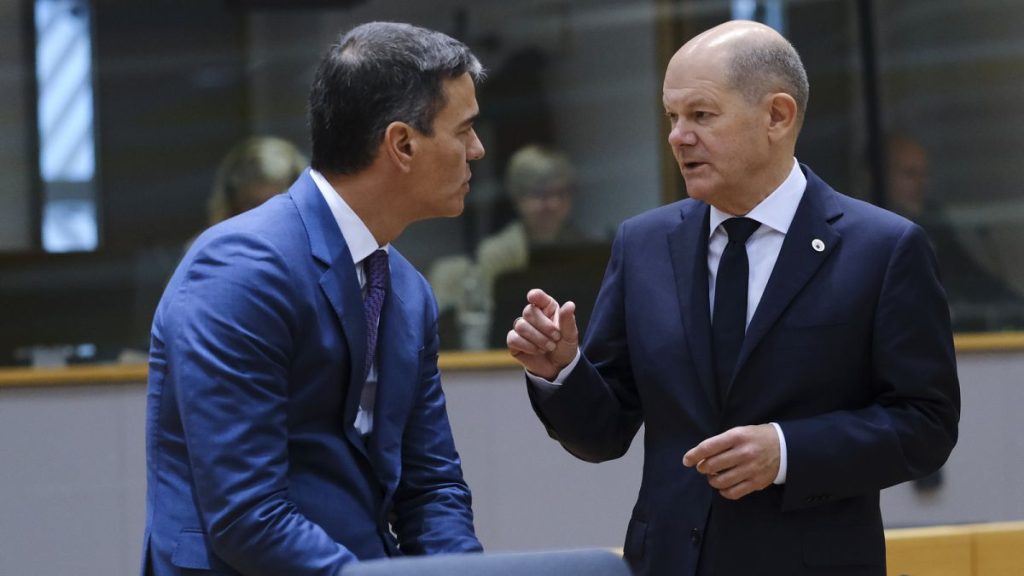Leaders in the EU are becoming increasingly critical of Israel’s actions in Lebanon, particularly its attacks on UN peacekeeping troops. This change in mood among leaders was evident at a recent summit in Brussels where there were repeated calls for de-escalation in the Middle East and the release of Israeli hostages in Gaza. The recent escalation in Lebanon, where Israeli forces targeted UN personnel, has led to a convergence of positions among EU leaders, who were previously divided on the issue. Spanish Prime Minister Pedro Sánchez and German Chancellor Olaf Scholz took the initiative of drafting a joint statement on the Middle East, signaling a willingness to smooth out divisions within the EU.
Israeli Prime Minister Benjamin Netanyahu has been criticized for his demands that UN peacekeeping troops leave southern Lebanon, with EU leaders reaffirming their support for UNIFIL’s role in the region. Despite this convergence in stances, there is still no majority support within the EU for using economic leverage to pressure Israel’s government. Ireland and Spain have requested that the European Commission re-open its trade deal with Israel in an Association Council to discuss human rights obligations. Israel has agreed to participate in such discussions, but has requested that they not relate to the situation in Gaza.
Ireland is considering reviving a 2018 bill that would ban trade between Ireland and Israeli settlements in the West Bank and East Jerusalem, potentially acting unilaterally if legal advice supports it. Belgium and Spain have expressed support for Ireland’s move, but have not committed to taking action without EU backing. The decision to restrict trade with Israeli settlements is seen as a way for Ireland to signal its disapproval of Israeli actions in the region. The EU’s top diplomat, Josep Borrell, has called for an assessment of Israel’s compliance with human rights obligations as outlined in the trade agreement between the EU and Israel.
The international mission of UNIFIL was established by the United Nations Security Council in 1978 with the aim of restoring peace and security in southern Lebanon. Israeli Prime Minister Benjamin Netanyahu has accused the Hezbollah militant group of using UNIFIL troops as human shields, leading to recent reports of Israeli forces firing at the peacekeeping troops. EU leaders have expressed support for UNIFIL’s role in southern Lebanon and called on all parties to protect and support the mission. The shift in EU leaders’ positions on Israel’s actions is largely attributed to the recent escalation in Lebanon, where Israeli forces targeted UN personnel, leading to increased criticism within the EU.
The EU’s willingness to take a stronger stance on Israel’s actions in Lebanon reflects a growing dissatisfaction among leaders with the Israeli government’s approach to the conflict in the region. The convergence of positions among EU leaders at a recent summit in Brussels highlights a shift in mood music on the issue, with calls for de-escalation and respect for international peacekeeping missions. The potential reopening of trade discussions between the EU and Israel, as well as individual actions by member states like Ireland, indicates a willingness to use economic leverage to address human rights concerns in the region. As the situation in Lebanon continues to escalate, EU leaders are likely to face increasing pressure to take a stronger stance on Israel’s actions in the region.


